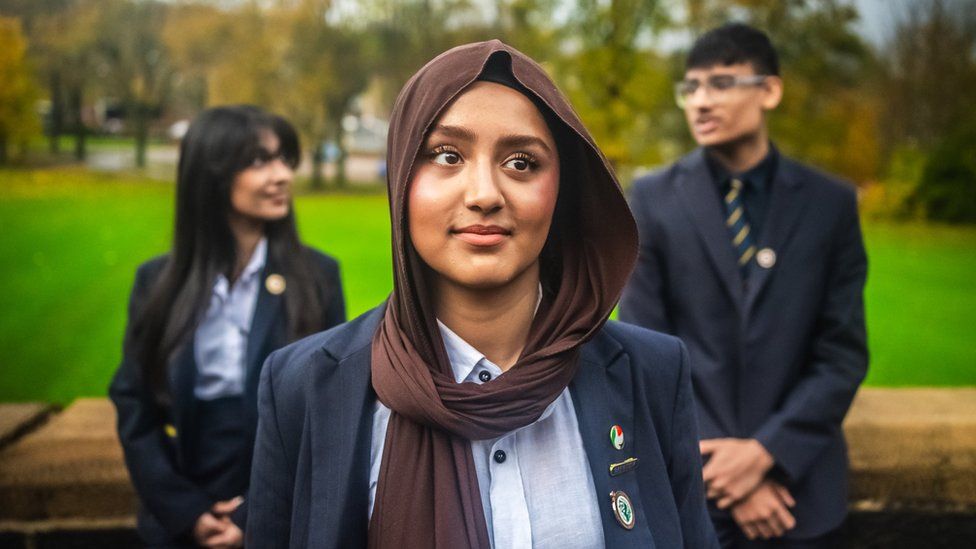-

-
-
Loading

Loading

A recent study suggests that the number of people in Bradford's Pakistani community who marry their cousins has declined significantly over the past decade. The decline can be attributed to factors such as higher levels of education, changing family dynamics, and amendments to immigration regulations. Juwayriya Ahmed, a 52-year-old teacher, revealed that she married her cousin in 1988, a decision that her children find appalling. A previous study conducted ten years ago discovered that around 60% of babies born into the Pakistani community in Bradford had first- or second-cousin parents. However, a new follow-up study indicates that this figure has dropped to 46%. The original study also highlighted that cousin marriage doubled the risk of birth defects, although these remained infrequent, affecting 6% of children with cousins as parents. Dr. John Wright, chief investigator of the Born in Bradford research project, stated that cousin marriage has transitioned from being a majority practice to a minority one. Cousin marriage is prevalent in Pakistan-administered Kashmir, where many Bradford families originate. However, there have been intergenerational conflicts within the community regarding this tradition, and some young people firmly reject the idea of arranged marriage and cousin marriage in particular. The Born in Bradford study, which began between 2007 and 2010 and included over 12,000 pregnant women from diverse backgrounds, monitored the health of the children born to these women. A follow-up study was conducted between 2016 and 2019, which recruited an additional 2,378 mothers from three inner-city wards. Both studies revealed that while a significant proportion of Pakistani-heritage mothers in the original group were married to cousins, the number decreased among those in the later group. The decline was even more pronounced among UK-born mothers, falling from 60% to 36%. The study also found that those with higher education levels were less likely to marry their cousins. The researchers believe that the latest study accurately reflects the Pakistani-heritage mothers in Bradford overall. The potential reasons behind the decline in cousin marriages are currently being explored in consultation with the community. New immigration rules have affected some individuals, such as Ayesha, who married her first cousin in Pakistan eight years ago. Her husband was only able to move to the UK when their child turned two. Ayesha appreciates the tradition of cousin marriage and regrets its decline. However, her younger sisters have rejected this practice and opted for their own choice of partners. The researchers have educated the community about the risks of congenital anomalies resulting from cousin marriage. These anomalies arise when both parents carry a specific defective gene, which is more likely to happen when they are cousins. Nevertheless, Dr. Aamra Darr, a medical sociologist, emphasizes that cousin marriage is a risk factor, not a cause of congenital anomalies. She highlights the politics of race and health, as some health workers have blamed cousin marriage for a sick child in the Pakistani community. Although cousin marriage was once common among the white British population, it is now rare in the UK. The decreasing acceptance of cousin marriage can also be seen among the younger generation in Bradford, who view it as abnormal and are more inclined to marry non-relatives due to increased opportunities and exposure to different viewpoints. Moving forward, it is clear that cousin marriage is becoming less prevalent in Bradford.